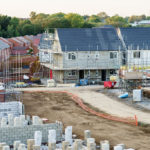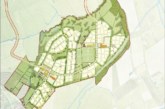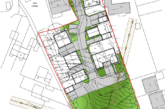 Purchasing land for development can be a complex proposition. David O’Reilly from Ainscough Strategic Land provides his top tips on how to make the process as straightforward as possible.
Purchasing land for development can be a complex proposition. David O’Reilly from Ainscough Strategic Land provides his top tips on how to make the process as straightforward as possible.
Leave nothing in the locker
You should feel nervous when you win, ‘have I over-paid?’ and distressed when you don’t, ‘could I have put more on the table?’. Put your best bid in, ask everything you’d ask if it was your own money, and trust your judgement. What is the seller is seeking? I’ve often secured sites where money is secondary to building relationships and delivering a scheme the landowner can be proud of. If you still lose then there’s comfort in knowing your competitor has a problem.
Be properly diligent with your DD
Is the capacity of local utility networks sufficient to deal with your ambitions? What technical constraints exist now, and what changes might be asked of you by statutory authorities before you get on site? Getting it wrong at Stage One is never cheap and rushing wastes time later on. Good surveyors and lawyers are vital and if you haven’t got absolute faith in them, look elsewhere.
How constraining are those constraints?
Does your cut and fill strategy deliver the levels you need? Will you have to export materials or can you just move them around the site? Then look at the finished floor levels of properties to understand how you’re going to get clean water in and waste water out. How are you going to tender the site – in phases at ‘all risk’ on the contractor? Are the working drawings reliable? Ask how the scheme will be constructed from sod-cutting through to the first units being occupied. Do each of the production, technical and sales teams know the plan of attack and do their strategies marry in cost and timescales? It may seem early to ask such questions, but you want to be nervous that you paid the highest price, not fearing you missed something which later costs you.
Mind the pennies
Have a forensic grasp of your cost plan before exchanging. Are you forecasting every possible cost and aligning that with the correct timescales so that your cash flow (and the cost of your money) is where you need it to be, all the way to the sale of the last unit? Get involved in the process of delivering a site from design on paper to the houses being built. There are always lessons learnt, from having the right mix of houses to release in each phase through to how the monthly site budget reviews marry with your first forecast. Such experience and learning is critical to success.
Remember the competition
You should have a keen understanding of your USPs in relation to competitors’. An average product offer, when set against competitor activity nearby, can cost you dearly. Find your edge and max it – then make sure your customers see, feel and experience it at every touch-point.
Communication is everything
If you’re not a good communicator the process will become harder, longer and less enjoyable if all parties to a transaction aren’t kept in the loop. Be accountable, flexible, open and accessible to the very end of a transaction and it will be a good deal easier. Transparency is key: get problems or issues on the table early so that no-one feels they are sprung on them down the line. Far better to under-promise and over-deliver – and understand that sellers just want to know the likely end outcome from the start so that they can manage and plan accordingly.









